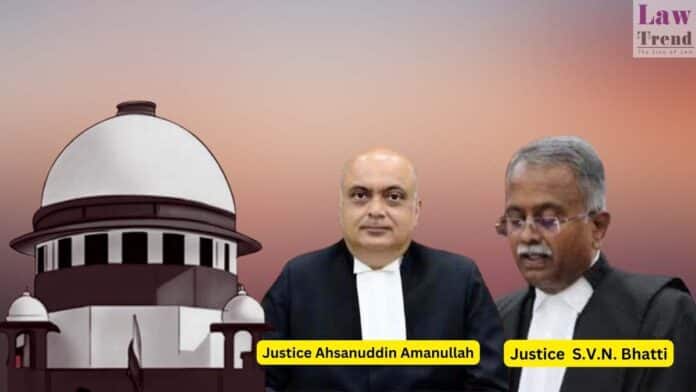The Supreme Court, while setting aside bail in a cheating case, has laid down significant principles governing the grant of bail, emphasizing that decisions must be rooted in the specific facts of a case rather than the mechanical application of legal precedents. A bench of Justices Ahsanuddin Amanullah and S.V.N. Bhatti clarified that the grounds
To Read More Please Subscribe to VIP Membership for Unlimited Access to All the Articles, Download Available Copies of Judgments/Order, Acess to Central/State Bare Acts, Advertisement Free Content, Access to More than 4000 Legal Drafts( Readymade Editable Formats of Suits, Petitions, Writs, Legal Notices, Divorce Petitions, 138 Notices, Bail Applications etc.) in Hindi and English.




